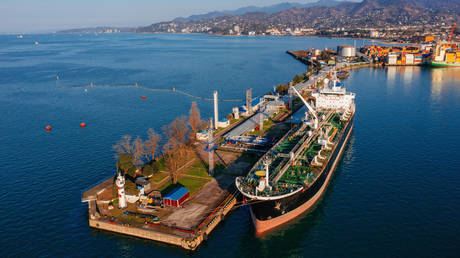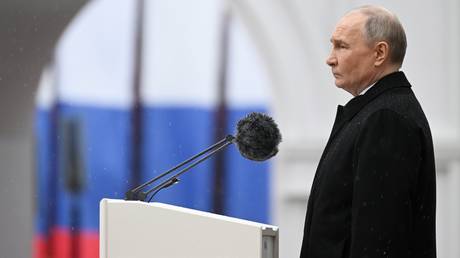The Pursuit of Adaptability and Resilience
by Daisy Luther, The Organic Prepper:

I’ve written before about the importance of adaptability in the preparedness world. It’s one of those things that are so important you simply cannot overstate it.
There were some comments on the article I wrote recently about the things I’d learned during the lockdown and it opens up a topic I’d like to discuss further. The commenters expressed disappointment that I had ditched most of my worldly possessions and headed off to wander the world and live the nomad life. Let me be very clear that I’m absolutely not trying to call anyone out – everyone is entitled to their own opinion and I respect your point of view. But I thought it might make for an interesting discussion.
This isn’t a newsy article filled with deep research or a how-to that will teach you ways to deal with specific threats. It’s simply a blog post in which I’m sharing a personal story and philosophy that some folks will find thought-provoking and others will find outlandish. But either way, do share your thoughts in the comments.
What I’d like to do is discuss the increased adaptability and resilience that I’ve experienced due to my unconventional lifestyle. I’m not suggesting that everybody should abandon their preps – living nomadically isn’t something that everybody would enjoy. But what I hope you do is begin to think outside the rigid confines of “bugging out” or “bugging in.” Because those are not the only options or possibilities when things go sideways. However, some preparation is warranted for the other options.
And I’m not the only one who feels this way. Check out this article by Selco about being adaptable enough to leave everything to survive.
A little bit of background
Last fall, I divvied up my preps between my daughters and sold or donated a lot of my things. Clothing, furniture, car, and clutter became history when I decided to streamline my life and go explore Europe. This may sound greatly at odds with preparedness, but please bear with me, because it’s actually not.
I was making my way up the Balkan peninsula when I got the news of a death in the family. I had spent months in Greece, Macedonia, Kosovo, and Albania and was in a lovely seaside village in Montenegro when I had to quickly return to North America. I had originally left with two suitcases, a giant purse, and a backpack and by this point had pared down to a suitcase, a carryon, and a backpack as I found more and more of the things I’d brought were, quite frankly, unnecessary.
Then, before my return flight to Podgorica, Montenegro, it became evident we were facing the possibility of a pandemic. I pushed back my return flight for three months and stayed with one of my daughters while I watched the situation unfold.
I’ll be very clear that I have every intention of returning to this nomadic lifestyle when I’m able to do so because life is all about living and experiencing things. I hope that you, too, will continue to live a life that makes you fulfilled and happy. Preparedness doesn’t have to mean sacrificing your dreams.
This was a life-altering journey in more ways than just mileage on a map. I learned some valuable lessons in resilience and adaptability, and I became a more confident urban survivalist. I strongly recommend this step to anyone who wants to become better prepared mentally – take the opportunity to step outside your comfort zone, whatever that may mean for you.
Here are some of the ways this helped me grow personally.
I became very adaptable.
When you take your 2 pieces of luggage and relocate regularly, you become good at adapting quickly. When we’re at home, it’s very easy to get set in our ways and to demand a certain level of comfort. (Who among us has “my chair”?) We get used to sleeping in the same bed with the same pillows and the same comforter, so much so that it can become difficult to sleep anywhere else. We have our favorite mug washed and ready to go for the following morning’s coffee. We have our favorite store that contains our favorite brands of our favorite products.
We become creatures of habit.
And there’s nothing wrong with that – habits can help us become better, stronger, healthier people when our habits are wise ones. But it’s also good to shake things up a little from time to time.
Every new place I went to had different stores with different food items. The local customs, restaurants, and apartments all varied. Each time, I got a little bit better at adapting faster. I can sleep anywhere. My business is such that I can work remotely in any place I have a decent wifi signal. I picked up some important phrases, like please, thank you, how much, and where’s the bathroom as soon as possible once I arrived in a new place. I learned a new currency in nearly every country I visited and wrote down the formula to quickly convert it to USD so that I could understand what I was spending. I can eat whatever gets put in front of me and enjoy nearly all of it, even when I thought I had ordered something completely different.
I quickly learned that when in another country, it’s impossible to rigidly stick to your ways and still have a good time. This helped me pare down to my most important needs – wifi, a plug adapter, a safe place to stay, a Berkey water filtration bottle, and appropriate clothing for my setting. Everything else can be acquired quickly and easily. (More on acquisition in a minute.)
If you were to strip your needs down to the absolute essentials for you, what would they be?
I learned to orient myself to new settings rapidly.
I started my trip in Athens, Greece and the first day or two was kind of rough. Even though I shouldn’t have been, I was surprised to see the signs in a totally different alphabet. I was jet-lagged and exhausted and it took me an hour of wandering to locate food and a restaurant where they spoke English. On the second day, I took a car service to try and get to a restaurant and ended up at an ancient temple instead, with no food in sight.
It was the learning experience I needed. I said to myself, “You’re living the dream. Don’t be such a baby. Go find something to eat and just go with the flow.”
That became my mantra throughout my time in Europe – go with the flow. I downloaded some apps to my phone to help with navigation and I got out and walked miles and miles. When arriving in a new location, as soon as it was daylight, I got out and walked to identify a nearby source of food (restaurants, grocery markets) and a convenience store.) I found the closest bodies of water – anything from creeks to fountains. I figured out where the nearest embassy was. I bought a local map. I acquired supplies immediately (dried soup mixes, bread, fresh produce).
After that, I just spent time adding more and more distance from my home base as I explored. Here’s an article about the methods I use to quickly orient myself to new cities.
I can put together a reasonable supply very quickly.
As I mentioned before, I started nearly from scratch preparing for the pandemic. Because I had an emergency fund, I was able to quickly and efficiently to get the necessary supplies to see us through the situation.
Read More @ TheOrganicPrepper.ca
Loading...



